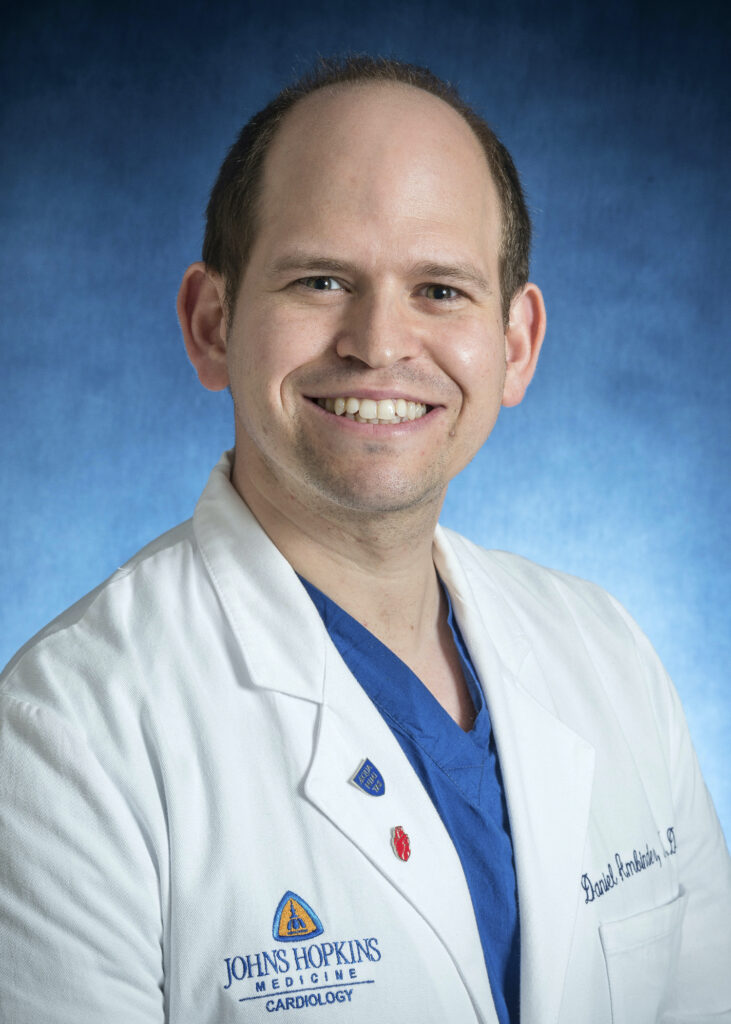
373. Narratives in Cardiology: Becoming a “Big E” Medical Educator as a Cardiologist with Dr. James Arrighi
Cardionerds: A Cardiology Podcast
ACGME International Accreditation Challenges and Recognition in Cardiology
Exploring the challenges faced by ACGME International in accrediting training programs globally and the growing recognition of these programs in the US, particularly in the field of cardiology.
In this episode, Dr. Katie Fell (General Cardiology Fellow at University of Michigan and CardioNerds Academy Fellow) and Dr. Gurleen Kaur (incoming General Cardiology fellow at Brigham and Women’s Hospital and Director of CardioNerds Internship) discuss with Dr. James Arrighi (General Cardiologist and CEO of ACGME-International) about developing as a clinician educator and the concept of competency-based education.
The PA-ACC & CardioNerds Narratives in Cardiology is a multimedia educational series jointly developed by the Pennsylvania Chapter ACC, the ACC Fellows in Training Section, and the CardioNerds Platform with the goal to promote diversity, equity, and inclusion in cardiology. In this series, we host inspiring faculty and fellows from various ACC chapters to discuss their areas of expertise and their individual narratives. Join us for these captivating conversations as we celebrate our differences and share our joy for practicing cardiovascular medicine. We thank our project mentors Dr. Katie Berlacher and Dr. Nosheen Reza.

Video version – Becoming a “Big E” Medical Educator as a Cardiologist with Dr. James Arrighi
Quoatables – Becoming a “Big E” Medical Educator as a Cardiologist with Dr. James Arrighi
- “You really have to have a passion or a love for what you do…that’s probably responsible for most of the success one has in life” (time 4:43)
- “Sub-subspecialty societies in Cardiology represent [a] great opportunity for junior faculty or even trainees to get involved, even before getting involved in ACC.” (time 5:30)
- “Competency-based medical education and time variable training are not synonymous.” (time 16:43)
- “As Cardiology evolves into more and more subspecialties…it begs the question… ‘Is Cardiology a primary specialty?’” (time 27:30)
- “We need to think about [a] more efficient ways for training.” (time 31:55)
- “As a clinician educator, there’s variety, there’s innovation!” (time 41:22)
Notes – Becoming a “Big E” Medical Educator as a Cardiologist with Dr. James Arrighi
How might one develop as a clinician educator on a national level?
- Junior faculty and trainees should consider taking advantage of education opportunities in various Cardiology sub-specialty societies (ex: American Society of Nuclear Cardiology, ASNC). This may include involvement in different committees. These opportunities are great ways to build connections and establish a reputation on a national level. This can help lead to other opportunities with larger national organizations (ex: ACC, AHA).
Cardiology Training Oversight
- The Accreditation Council for Graduate Medical Education (ACGME) and American Board of Internal Medicine (ABIM) both have regulatory power over Cardiology training, providing the minimum clinical experience standards for Cardiology fellowship training programs.
- The ACGME oversees accreditation for Cardiology fellowships.
- The ABIM defines the requirements for eligibility for certification of individuals.
- Over time, the ACGME has transitioned to placing an emphasis on quality improvement, with a particular focus on continuous programmatic improvement.
- The American College of Cardiology (ACC) helps define more granular recommendations for Cardiology training programs and their curriculum.
- Periodically the ACC releases training guidelines for Cardiology fellowship programs, called Core Cardiovascular Training Statements, or COCATS. This document provides more contemporary, detailed, and specialty-specific recommendations for Cardiology training as compared to ACGME.
- While ACC has no regulatory authority over Cardiology training programs, COCATS documents provide a roadmap for program directors on how to structure training.
- The most recent version of the document, COCATS 4, incorporated in the concept of competency-based education (CBME).
What is Competency-Based Education (CBME)?
- Medical education has evolved to focus more on outcome-based assessments of trainees structured around competency evaluations.
- In 2002, the ACGME defined competencies by which training programs should evaluate their trainees. As a result, training shifted from a time-based structure to one in which trainees must demonstrate specific competencies within a specific time frame.
- ACC further defined competencies for Cardiology training in the Core Cardiovascular Training Statement 4 (COCATS 4). This is the first COCATs document introducing aspects of CBME, including defining competencies, milestones, and tools to assess a Cardiology trainee’s performance.
- Each of these documents focuses on optimizing fellow time while in training, targeting education to the learner’s goals and their future career trajectory.
- Moving to a competency-based, time-variable training program in the U.S. would be challenging and would require significant restructuring of our current GME training system, including Medicare funding.
What is ACGME-International (ACGME-I)?
- Group within the ACGME dedicated to improving health care internationally by assessing and advancing the quality of resident physicians’ education through accreditation.
- The organization is currently present in 12 countries at 23 sponsoring institutions (as of April 2024).
- ACGME-I provides postgraduate medical education programs with standardized frameworks on how to improve the quality of teaching, learning, research, and clinical practice for their trainees.
References
- Weissman G, Auseon AJ, Arrighi JA, et al. Perceptions and Utilization of the U.S. Core Cardiovascular Training Statement. J Am Coll Cardiol. 2019;73(22):2896-2899.
- Halperin JL, Williams ES, Fuster V. COCATS 4 Introduction. J Am Coll Cardiol. 2015;65(17):1724-1733.
- Arrighi JA, Kilic S, Haines PG. Perspectives on Current Training Guidelines for Cardiac Imaging and Recommendations for the Future. Curr Cardiol Rep. 2018;20(6):43. Published 2018 Apr 23.
- ACGME Program Requirements for Graduate Medical Education in Cardiovascular Disease. Accessed February 2, 2024.
- Mendes LA, Weissman G, Berlacher K, et al. Competency-Based Alternative Training Pathway in Cardiovascular Disease and Clinical Cardiac Electrophysiology. J Am Coll Cardiol. 2022;79(25):2540-2542.
Production Team





